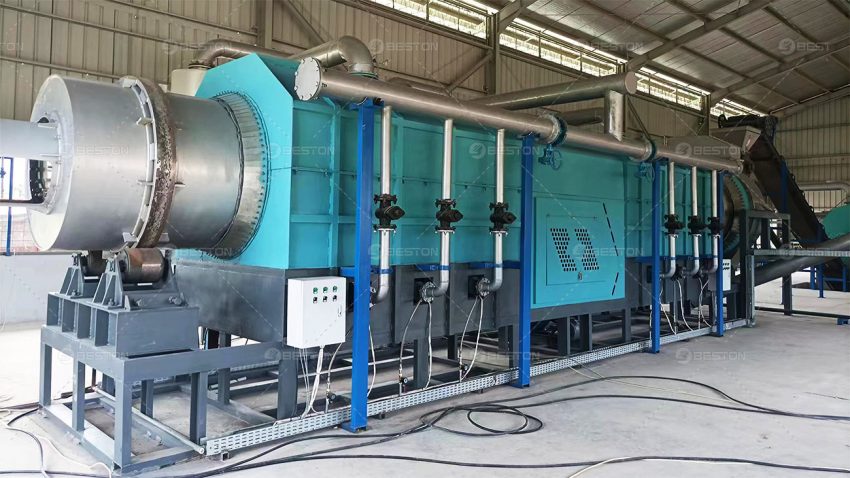Biochar, a stable, carbon-rich material produced through pyrolysis of biomass, is increasingly recognized as a multifunctional additive in agricultural and livestock systems. Derived from various feedstocks such as wood, sawdust, and coconut shell, this porous substance provides a broad spectrum of agronomic and environmental benefits. Through the use of modern carbonization technologies—such as charcoal making machine, wood charcoal making machine, and sawdust charcoal making machine—biochar can be produced at scale with consistent quality.
Soil Amendment and Nutrient Management
In agriculture, biochar serves as a highly effective soil conditioner. Its porous structure enhances cation exchange capacity, facilitating better retention of essential nutrients such as nitrogen, potassium, and phosphorus. This prevents nutrient leaching and improves fertilizer efficiency, especially in sandy or degraded soils.
When integrated into compost or applied directly into the root zone, biochar enhances microbial activity, regulates soil pH, and promotes aeration. These effects contribute to increased crop yields, better root development, and improved drought resilience. Additionally, the material’s high surface area facilitates moisture retention, making it particularly advantageous in arid and semi-arid farming regions.
Biochar’s carbon stability also enables long-term sequestration of atmospheric CO₂, contributing to climate change mitigation. When produced from renewable biomass using systems like wood charcoal making machine or coconut shell charcoal making machine, its life-cycle carbon footprint remains minimal.

Integration into Circular Farming Systems
The production of biochar using sawdust charcoal making machine or coconut shell charcoal making machine allows farmers to utilize on-site agricultural residues, closing the biomass loop. This integration supports self-sufficient nutrient cycles, waste valorization, and reduced dependency on external inputs.
Charcoal making machine systems equipped with gas recovery and energy reuse capabilities also generate syngas or bio-oil, further enhancing the energy efficiency of the operation.

Livestock Feed and Health Supplement
In animal farming, biochar made by coconut shell charcoal making machine is gaining traction as a feed additive due to its adsorptive and detoxifying properties. When introduced into livestock diets in small quantities, it binds to mycotoxins, heavy metals, and harmful microbes in the gastrointestinal tract. This reduces toxin absorption, improves nutrient assimilation, and supports gut health in cattle, poultry, and swine.
Studies have shown that biochar supplementation can enhance feed conversion ratios, lower methane emissions in ruminants, and reduce the incidence of digestive disorders. Its inclusion also leads to more efficient weight gain and healthier livestock without reliance on antibiotics or synthetic additives.
Manure Management and Odor Control
Biochar made by charcoal making machine plays a critical role in animal waste management. When mixed with bedding or directly added to manure pits, it captures ammonia and other volatile organic compounds, significantly reducing odor emissions. This results in a cleaner, healthier environment for both animals and farm workers.
Moreover, the use of biochar in manure composting accelerates decomposition, stabilizes nitrogen, and reduces greenhouse gas emissions. The final compost product, enriched with biochar, becomes a potent organic fertilizer with improved microbial diversity and nutrient content.
Conclusion
Biochar serves as a multifunctional asset in modern agriculture and animal husbandry. Through the deployment of advanced charcoal making machine technologies, farmers can convert residual biomass into high-value carbon products that enhance soil fertility, improve animal health, and contribute to sustainable resource management. Its versatility and environmental benefits make biochar a cornerstone in regenerative and climate-resilient farming practices.
